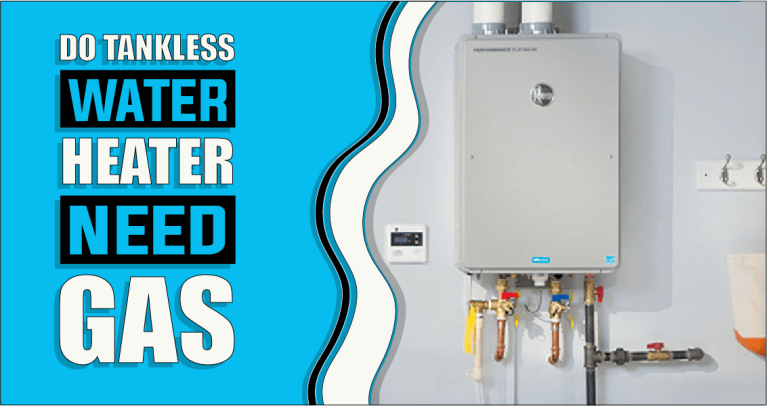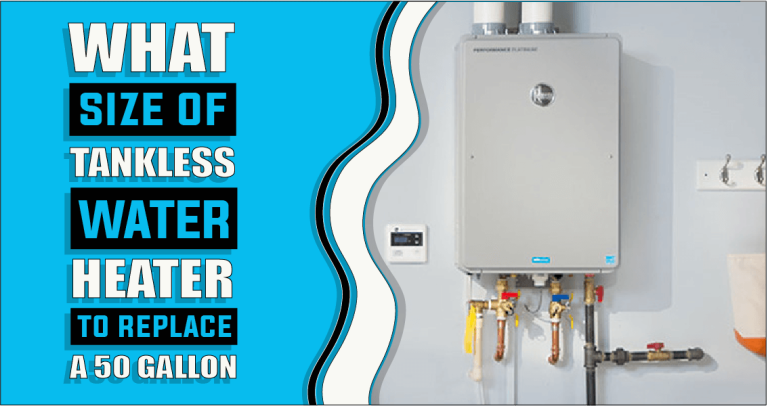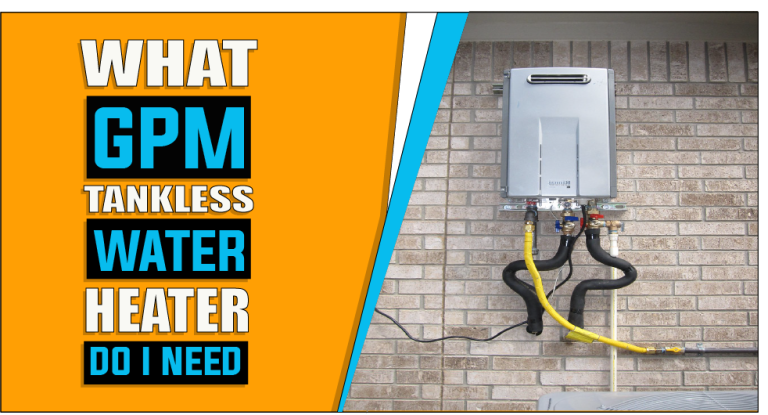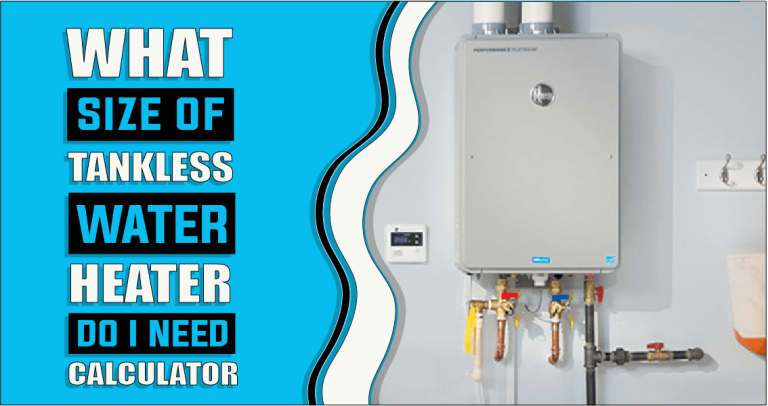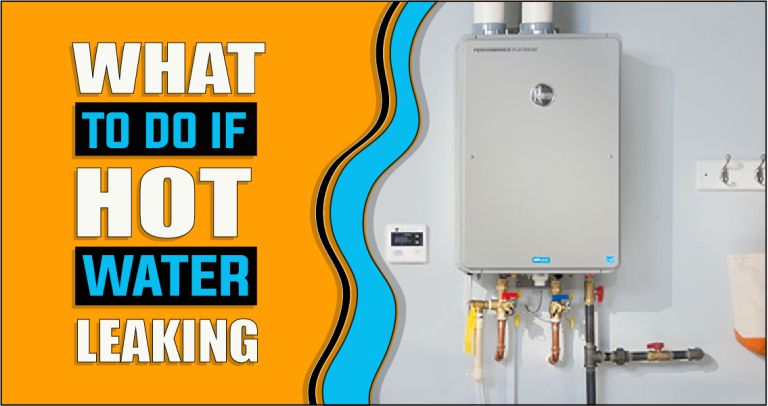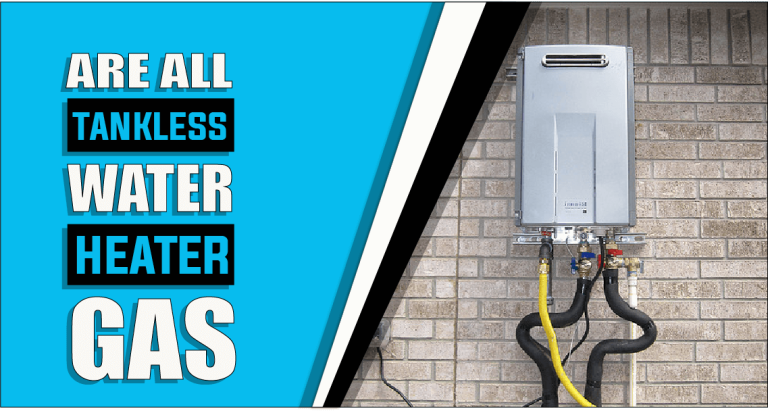How Much Does Electric Water Heater Cost To Run | Unlocking the True Cost
Are you tired of high utility bills and considering switching to an electric water heater? One crucial factor to consider is the cost of running an electric water heater. With increasing concerns about energy efficiency and sustainability, it is essential to understand the financial implications of using this appliance. Electric water heaters offer efficiency and convenience, but one crucial consideration for users is understanding the cost of operating these systems. Knowing how much it costs to run an electric water heater can help you manage your energy consumption and budget more effectively. In today’s guide, you’ll get enlightening information on how much electric water heater costs to run, how to optimize your usage for maximum savings, and much more. Ready, set, and go!
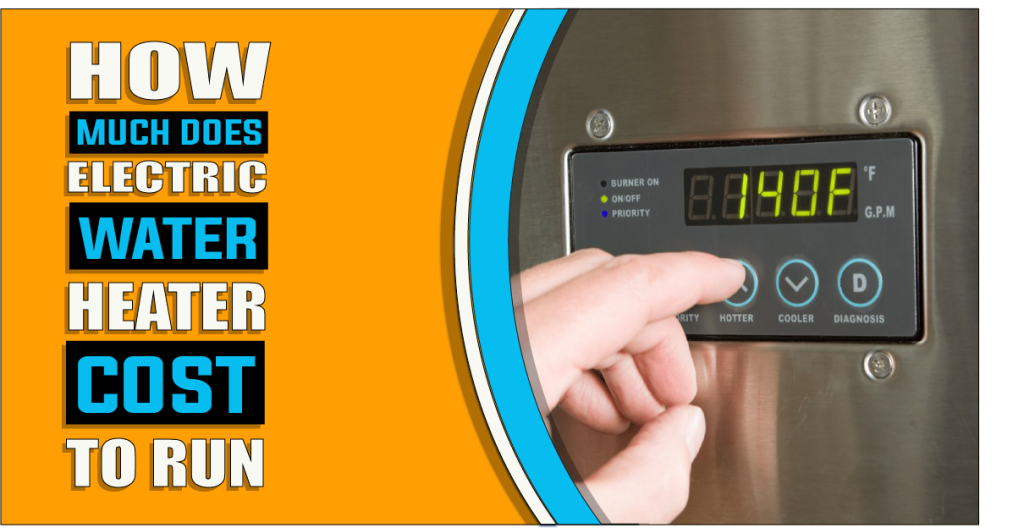
An overview of the estimated cost of an electric water heater
The cost of running an electric water heater depends on several factors. The primary factors include the heater’s wattage rating, the electricity price in your area, and your household’s hot water consumption. Electric water heaters consume around 4500 to 5500 watts per hour on average. However, newer models may be more energy-efficient.
To estimate the cost, multiply the heater’s wattage by the daily hours and your electricity rate per kilowatt-hour. For example, if your electric water heater runs 4 hours a day, and your electricity rate is $0.15 per kilowatt-hour, the daily cost would be around $2.40.
It’s worth noting that costs can vary significantly depending on geographic location and energy rates. Additionally, implementing energy-saving measures, such as insulating your water heater or using a timer, can help reduce costs.
Ultimately, understanding the cost of running an electric water heater lets you decide your home’s energy consumption and budget.
Types of Electric Water Heaters and Operating Costs
Electric water heaters come in two primary types: traditional tank water heaters and tankless water heaters. Understanding these types is crucial as they affect your household’s hot water needs and operating costs.
1: Traditional Tank Water Heaters –
- Description: These heaters consist of a large tank that stores and continuously heats a fixed amount of water.
- Operating Costs: Tank water heaters tend to have higher operating costs due to standby heat losses. They always maintain hot water, which can result in energy wastage.
2: Tankless Water Heaters –
- Description: Tankless heaters heat water on demand as it flows through the unit, eliminating the need for a storage tank.
- Operating Costs: Tankless water heaters are more energy-efficient since they only heat water when needed. This can lead to potential energy savings and lower operating costs.
The choice between these types depends on initial budget, space availability, and long-term energy efficiency goals. Tankless heaters have a higher upfront cost but can offer significant savings over time due to their energy-efficient design. Traditional tank heaters, while more budget-friendly initially, can result in higher operating costs.
Calculating the Cost of Operating an Electric Water Heater
Calculating the cost of running an electric water heater is essential for managing your monthly utility expenses and making informed decisions about energy usage. Fortunately, it’s not a complex process, and understanding how to do it can help you budget effectively and potentially reduce your energy bills. Here’s a step-by-step guide on how to calculate the cost of operating your electric water heater:
- The Formula for Calculating the Cost
To determine the cost of running your electric water heater, you’ll need to use a basic formula:
Cost per Hour = Power Consumption (in kilowatts) x Electricity Rate (in kilowatt-hours) x Time (in hours)
Let’s break down each component of the formula:
Power Consumption (in kilowatts): This refers to the electricity your water heater consumes when running. This information is usually found on the water heater’s nameplate or in the user manual. It’s typically expressed in kilowatts (kW).
Electricity Rate (in kilowatt-hours): The electricity rate is how much you pay for each kilowatt-hour (kWh) of electricity. You can find this information on your electricity bill. Rates can vary depending on your location and the utility company.
Time (in hours): This represents the hours your water heater operates daily. It would help if you estimated this based on your household’s hot water usage patterns.
Example Calculation:
Let’s say your electric water heater has a power consumption of 4 kW, and your electricity rate is $0.12 per kWh. If your water heater runs for an average of 3 hours per day:
Cost per Hour = 4 kW x $0.12 per kWh x 3 hours = $0.48 per hour
- Real-World Examples and Calculations
To make this calculation more practical, you can estimate your monthly and annual costs by multiplying the cost per hour by the number of hours your water heater runs in a day, a month, or a year. Here’s how you can do it:
Monthly Cost: Multiply the cost per hour by the number of hours your water heater runs daily and then by the number of days a month.
Monthly cost = Cost per Hour x Hours per Day x Days per Month
Annual Cost: Multiply the monthly cost by 12 (for the 12 months in a year) to get your yearly cost.
Annual cost = Monthly Cost x 12
For example, if your water heater runs for 3 hours a day:
Monthly Cost = $0.48 per hour x 3 hours per day x 30 days = $43.20 per month
Annual Cost = $43.20 per month x 12 months = $518.40 per year
Using these calculations, you can estimate the cost of running your electric water heater on a monthly and yearly basis, which can help you budget more effectively.
- Tools and Online Calculators for Estimating Costs
If you prefer a more convenient method, several online calculators and smartphone apps can help you estimate the cost of running your electric water heater. These tools often consider factors like local electricity rates, water heater efficiency, and usage patterns to provide a more accurate estimate.
Factors to consider while determining the overall electric water heater cost
Determining the overall cost of an electric water heater involves considering several factors. Here are some key points to consider:
1: Wattage rating and consumption –
Wattage rating refers to the amount of electrical power an electric water heater consumes. It is an essential factor in determining the cost and energy efficiency of the appliance. Electric water heaters typically have wattage ratings ranging from 1500 to 5500 watts, although newer models may have lower ratings due to improved technology.
The wattage rating directly affects the water heater’s consumption of electricity. A higher wattage rating means that the heater uses more power and consumes more electricity. For example, a water heater with a rating of 4500 watts will consume 4.5 kilowatt-hours (kWh) of electricity per hour of operation.
The consumption of an electric water heater depends on how long it operates each day. If the heater runs for four hours daily, it will consume 18 kWh of electricity daily. Multiply this daily consumption by the electricity rate in your area to estimate the cost. Remember that these calculations are approximate and vary based on insulation, usage patterns, and temperature settings.
Understanding the wattage rating and consumption of an electric water heater allows homeowners to make informed decisions about energy usage and costs. Energy-efficient models with lower wattage ratings can help reduce electricity consumption and save money in the long run.
2: Electricity rates –
Electricity rates are crucial in determining the cost of an electric water heater. These rates vary based on location, utility provider and use time. Understanding electricity rates is essential for estimating expenses accurately and making informed decisions about energy usage.
Electricity rates are typically measured in kilowatt-hours (kWh), representing the energy consumed over an hour. The cost per kWh varies depending on factors like geographic region, supply and demand, and government regulations. Rates can differ significantly between different areas and even within the same locality due to factors like competition among utility providers.
To estimate the cost of running an electric water heater, multiply the wattage rating of the appliance by the number of hours it operates daily and then multiply the result by the electricity rate per kWh. This calculation estimates the daily energy cost for operating the water heater.
It’s important to note that electricity rates can fluctuate, and some utility companies offer different pricing structures, such as tiered rates or time-of-use rates. Time-of-use rates vary based on the time of day, with higher rates during peak demand periods. Some regions may have alternative energy programs or renewable energy options that could also impact pricing.
Staying aware of electricity rates helps homeowners understand the financial impact of their energy consumption. It encourages them to explore energy-saving measures to lower costs, such as using energy-efficient appliances or shifting usage to off-peak hours.
3: Estimating the daily cost –
Estimating the daily cost of running an electric water heater is essential for budgeting and understanding the financial impact of this appliance. By considering key factors such as wattage, hours of operation, and electricity rates, homeowners can accurately estimate their daily expenses.
To estimate the daily cost, start by identifying the wattage rating of the electric water heater. This information is typically found on the manufacturer’s label or product specifications. Next, determine the average hours the water heater operates each day. This can vary based on household needs and usage patterns.
Multiply the wattage rating by the number of hours of operation to calculate the total energy consumption per kilowatt-hour (kWh) daily. To obtain the daily cost, multiply the energy consumption by the electricity rate per kWh provided by your utility provider. This will estimate the amount spent on running the electric water heater for a single day.
It’s important to note that electricity rates can vary based on location and may have different rates for peak and off-peak hours. Additionally, rates may change over time due to market fluctuations or changes in energy policies. Therefore, checking with your utility provider for the most accurate and up-to-date electricity rates is advisable.
Estimating the daily cost of running an electric water heater allows homeowners to manage their energy expenses better and make informed decisions about their overall utility budget. It also serves as a basis for comparing costs between different water heating options and exploring energy-efficient measures to reduce potential daily expenses.
4: Monthly and yearly costs –
Calculating the monthly and yearly costs of running an electric water heater is crucial for budgeting and understanding the long-term financial impact. Homeowners can estimate their expenses accurately over extended periods by considering factors such as electricity rates, hours of operation, and energy consumption.
To calculate the monthly cost, determine the daily cost as explained earlier. Multiply the daily cost by the average number of days to obtain the estimated monthly expense for running the electric water heater.
For the yearly cost, multiply the daily cost by 365 (or the actual number of days in a year) to estimate the amount spent on operating the water heater annually.
It’s important to note that electricity rates may vary, so checking with your utility provider for the most up-to-date rates is essential. Additionally, consider any seasonal fluctuations in energy consumption and adjust the calculations accordingly.
Estimating the monthly and yearly costs allows homeowners to plan better and manage their utility budgets. It also provides insights into potential savings and encourages the exploration of energy-efficient measures like using programmable thermostats or insulating hot water pipes.
By staying aware of the monthly and yearly costs, homeowners can make informed decisions about their energy usage, identify opportunities for reducing expenses, and ultimately save money in the long run.
Other important factors that influence the costs
Various factors can influence the costs associated with running an electric water heater. Understanding these factors can help homeowners make informed decisions and manage their expenses more effectively.
- Energy Efficiency: The water heater’s efficiency plays a significant role in determining costs. Higher-efficiency models consume less energy, resulting in lower operating costs.
- Usage Patterns: The frequency and duration of water heater usage impact costs. Increased usage and extended periods of operation will lead to higher energy consumption and costs.
- Insulation: Proper insulation of the water heater tank and hot water pipes can minimize heat loss, reducing the need for the heater to work harder and consume more energy.
- Maintenance: Regular maintenance ensures optimal performance and efficiency. Neglecting maintenance can reduce efficiency and energy consumption, increasing costs.
- Water Temperature: Keeping the water temperature unnecessarily high can increase costs. Adjusting the temperature to a comfortable yet energy-efficient level can help save on operating expenses.
By considering these factors, homeowners can make informed choices regarding their water heating system. Opting for energy-efficient models, implementing proper insulation and maintenance, and being mindful of usage patterns can reduce costs and promote energy savings.
Tips for reducing costs of electric water heaters
Reducing costs is a goal that many individuals and businesses strive to achieve. Implementing a few simple strategies makes it possible to make significant savings without compromising on quality or comfort. Here are some detailed tips for reducing the costs of operating an electric water heater:
Tip 1: Set the Thermostat Temperature Lower –
Many water heaters are set at a default temperature higher than necessary. Lowering the thermostat to around 120°F (49°C) can save you money without compromising your hot water needs. For every 10°F reduction, you can typically save 3-5% on your energy bill.
Tip 2: Install a Timer or Smart Controller –
Consider installing a timer or an intelligent controller for your electric water heater. These devices allow you to schedule when the heater operates, ensuring it’s active only when you need hot water, such as during the morning and evening routines.
Tip 3: Insulate Your Water Heater –
Insulating your water heater tank and pipes can help retain heat and reduce standby heat loss. You can find pre-cut insulation blankets for water heaters at most hardware stores. Insulating hot water pipes can also prevent heat loss as water travels to your faucets.
Tip 4: Fix Leaks Promptly –
Leaky faucets or pipes can lead to wasted hot water and increased heating costs. Repair any leaks as soon as you notice them to prevent energy wastage.
Tip 5: Upgrade to Energy-Efficient Models –
Consider upgrading to a newer, energy-efficient model if your electric water heater is old and inefficient. Look for appliances with a higher Energy Factor (EF) rating, which indicates better efficiency.
Tip 6: Consider a Tankless Water Heater –
Tankless (on-demand) water heaters only heat water when needed, eliminating standby heat loss. While they have a higher upfront cost, they can significantly reduce long-term energy expenses.
Tip 7: Regular Maintenance –
Schedule annual maintenance for your water heater. This includes flushing the tank to remove sediment buildup, which can reduce heating efficiency, and checking for any worn-out components.
Tip 8: Use Off-Peak Hours –
Some utility companies offer reduced electricity rates during off-peak hours, typically late at night or early in the morning. If your utility offers such a plan, consider using your water heater during these times to lower your energy costs.
Tip 9: Shorten Showers –
Encourage shorter showers and more efficient water use in your household. Installing low-flow showerheads and faucets can help reduce hot water consumption without sacrificing comfort.
Tip 10: Combine Tasks –
Try to group tasks that require hot water, such as laundry and dishwashing, to minimize the number of times your water heater has to heat water throughout the day.
Tip 11: Educate Household Members –
Ensure everyone in your household knows the importance of conserving hot water. Simple practices like turning off the tap while brushing teeth can save significantly.
By implementing these tips, you can effectively reduce the operating costs of your electric water heater while maintaining a reliable hot water supply for your daily needs. Making energy-efficient choices saves you money and contributes to a more sustainable and environmentally friendly lifestyle.
Conclusion
That’s all about how much an electric water heater costs to run! Understanding the cost of operating an electric water heater is a vital step toward managing your household expenses and reducing energy consumption. By considering factors such as the type of water heater, its efficiency, and your personal usage patterns, you can make informed choices that save you money and contribute to a more sustainable and eco-friendly home. Remember, with the proper knowledge and strategies, you can enjoy the convenience of hot water while keeping your utility bills in check.
FAQS:
To estimate the monthly cost, multiply the heater’s wattage by the daily hours, then divide that by 1000 to convert it to kilowatt-hours (kWh). Finally, multiply this value by the local electricity rate per kWh to get the estimated monthly cost.
Yes, upgrading to a more energy-efficient electric water heater, such as a tankless or heat pump model, can significantly reduce energy consumption and, consequently, lower the cost of operation. While these units may have a higher initial cost, the long-term savings can outweigh the upfront investment.
To compare costs, consider different water heater types’ energy sources and efficiency. Gas-powered heaters may have lower operating costs but higher upfront installation expenses. Solar water heaters can provide substantial savings in sunny regions. Consulting with a professional and considering long-term costs and payback periods will help make an informed decision.
Perform annual maintenance on your electric water heater to keep costs down. Flushing the tank to remove sediment buildup enhances heating efficiency. Regularly check for leaks to prevent water wastage and damage. Inspect the anode rod, which inhibits corrosion, and replace it if needed. This routine maintenance ensures your water heater operates efficiently, reducing energy consumption and the risk of expensive repairs.
Yes, solar panels can significantly reduce the cost of running your electric water heater. Solar water heating systems harness energy from the sun to heat water, reducing the reliance on electricity. They consist of solar collectors that absorb sunlight and transfer the heat to the water in a storage tank. This renewable energy source can provide a substantial portion of your hot water needs, leading to considerable cost savings over time.
Ella John is passionate about helping her readers make the best choice when purchasing a heater. She understands that selecting a heater can be difficult and strives to provide information to help make the decision easier. Ella’s website, Heatersinfo.com, provides valuable insight into heating trends and types of heaters and tips on how to care for them. She also advises selecting the right heater based on individual needs and preferences. Her expertise in electronics makes her an excellent source of knowledge, and she is confident that anyone who visits her website will find the perfect heater information for their needs. Ella’s dedication to helping others make educated decisions about buying the right heater is unparalleled, and she hopes to continue offering her expertise for many years. With Ella’s help, finding the perfect heater can be a breeze!

